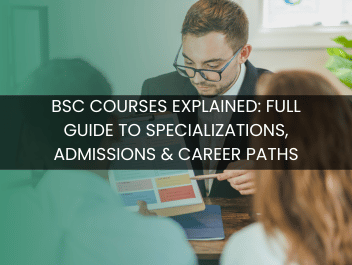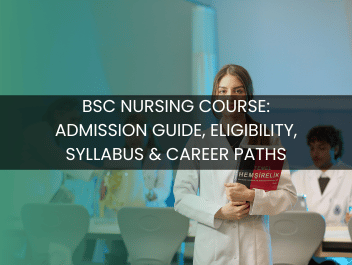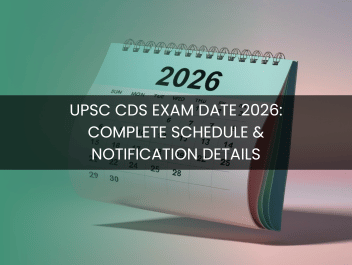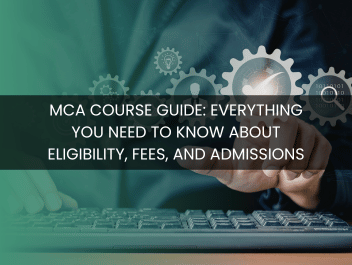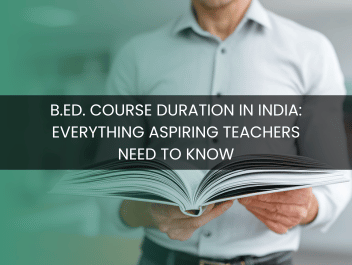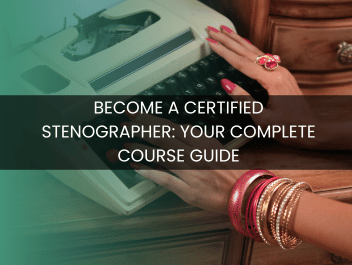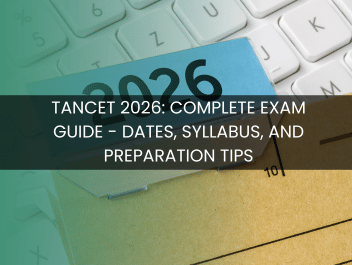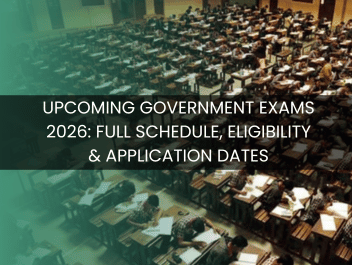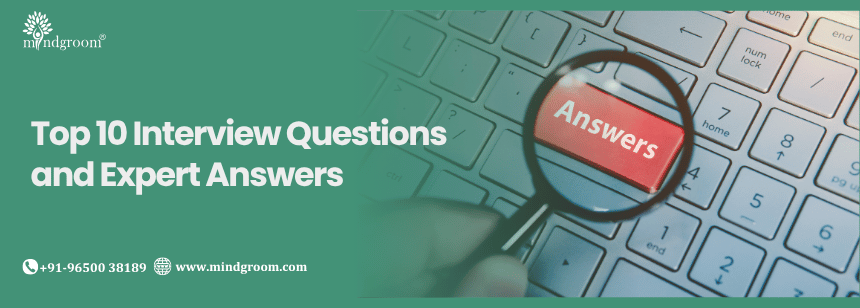
Top 10 Interview Questions and Expert Answers
Stepping into an interview room can feel like walking onto a stage, the spotlight of scrutiny unwaveringly fixated on you. As the pressure builds, navigating these moments with poise sounds daunting, but understanding the top 10 interview questions can ease that tension. In a job market more competitive than ever, mastering the ten common interview questions, along with their expert answers, is essential for anyone aiming to leave a lasting impression.
Interview preparation is not merely about dressing the part but about expecting the unexpected—a refined art where knowing the top 5 interview questions can set you apart. Whether answering typical retail interview questions and answers or expressing genuine interest in a role, it's crucial to articulate your strengths, tackle questions about weaknesses, and align your experience effectively. Being prepared with insightful answers to the top 10 questions ensures that you're ready to engage confidently, enhancing your chances of securing the position.
This article delves into the top 10 interview questions and expert answers, providing you with the tools needed to navigate interviews adeptly. From expressing future aspirations to handling salary discussions, we offer strategies to present yourself as the best candidate for the role. By the end of this guide, you'll be equipped to walk into any interview room not just ready to face questions but to master them with structured preparation and newfound confidence.
Table of Content
- 1. The Importance of Preparing for Interviews
- 2. Tips for Your Interview Preparation:
- 3. Classic Opener: "Tell Me About Yourself"
- 4. Expressing Genuine Interest: "Why Do You Want to Work Here?"
- 5. Discussing Weaknesses: Turn Them into Opportunities
- 6. Aligning Experience: Relate Past Experiences to the Role
- 7. Problem-Solving Skills: Handling Challenging Situations
- 8. Interpersonal Skills: Conflict Resolution Tactics
- 9. Future Aspirations: "Where Do You See Yourself in Five Years?"
- 10. Sample Answer:
- 11. Thoughtful Queries: Questions to Ask the Interviewer
- 12. Questions to Ask the Interviewer:
- 13. Salary Discussions: Navigating Expectations and Negotiations
- 14. Conclusion: Embracing Confidence with Structured Preparation
The Importance of Preparing for Interviews
Preparing for interviews is crucial for job seekers aiming to make a lasting impression. Familiarizing yourself with ten common interview questions can boost your confidence and help you articulate your thoughts clearly. Knowing the top 10 interview questions and top 5 interview questions can give you an edge over competitors.
Common Interview Questions:
- Describe yourself.
- Why are you interested in this role?
- What are your career goals?
- Share a difficult situation you faced.
- How do you handle stressful situations?
Understanding these can guide your responses and welcome growth opportunities. In retail settings, knowing specific retail interview questions and answers is vital. Research the job description to tailor responses to match the ideal candidate profile.
Tips for Your Interview Preparation:
- Practice answering questions aloud.
- Research the company culture.
- Review the job description and align your experiences.
- Prepare to discuss salary expectations candidly.
Strong communication skills can highlight you as a team player. Ultimately, thorough preparation helps articulate your career path and prepares you for the interview process. A well-prepared candidate stands a better chance of impressing the hiring manager, showing readiness for the current role, and eventually achieving professional development.
Classic Opener: "Tell Me About Yourself"
The question "Tell me about yourself" is a classic opener in interviews. It's one of the ten common interview questions that sets the stage for your introduction to the hiring manager. Your response here can significantly impact the interview process.
When answering, focus on a concise summary of your career path, highlighting relevant experiences that align with the job description. Avoid diving too deeply into your personal life. Instead, emphasize your strong communication skills and ability as a team player.
For instance, discuss your previous role or current role, linking it to the position you are applying for. Mention your career goals and any professional development you're pursuing, which showcases your growth opportunities mentality.
Here's a sample answer: "I am a digital marketer with over five years of experience in crafting successful campaigns. In my current role, I lead a team and focus on expanding our online presence, which recently resulted in a 30% increase in engagement. I am enthusiastic about the opportunity to bring my skills to [Company Name], where I hope to contribute to innovative marketing strategies."
The right mix of personal and professional insights ensures you stand out as the ideal candidate.
Expressing Genuine Interest: "Why Do You Want to Work Here?"
Expressing genuine interest during an interview is crucial, especially when answering the question, "Why do you want to work here?" To impress the hiring manager, show that you've done your homework. Start by researching the company's values, mission, and culture. Understanding these can help you align your career goals with the company's direction.
Demonstrate how your career path and previous roles make you an ideal candidate for the current role. Discuss aspects of the job description that excite you and relate them to your growth opportunities and professional development.
Prepare a sample answer that highlights your enthusiasm. For instance, "I admire your company’s commitment to innovation and value strong communication skills. My background in digital marketing and being a team player fit well with the dynamic environment here."
Wrong answers focus solely on salary expectations or vague reasons. Instead, emphasize the company's positive aspects and how you contribute to them.
Use a table to organize your points if needed, such as matching your skills with the company's requirements.
Ultimately, your answer should convey a sincere interest in the company and demonstrate that you see a future there. By doing so, you'll leave a lasting impression during the interview process.
Highlighting Strengths: Presenting Your Strongest Qualities
Highlighting your strengths during a job interview is crucial to making a strong impression. Here are some top strategies to effectively present your strongest qualities:
- Identify Your Strengths: Before the interview, take time to assess your skills. Consider five strengths that align with the job description and company culture.
- Use Examples: When discussing strengths, provide specific examples. For instance, if you have strong communication skills, talk about a time you used them in a previous role to resolve a difficult situation.
- Be Honest: Authenticity is key. Avoid exaggerations and focus on genuine qualities.
- Relate to Growth Opportunities: Highlight strengths that demonstrate your potential for professional development and your career goals.
- Incorporate Keywords: Use terms like "team player" and "problem-solving" to align with common job interview questions and employer expectations.
Below is a table illustrating how to align your strengths with common interview topics:
|
Interview Topic |
Relevant Strengths |
|
Teamwork |
Collaboration, Adaptability |
|
Problem-Solving |
Innovative thinking, Perseverance |
|
Communication |
Strong communication skills, Persuasiveness |
By focusing on these areas, you'll stand out as an ideal candidate during the interview process.
Discussing Weaknesses: Turn Them into Opportunities
Discussing weaknesses in a job interview can be challenging. However, it can also be an opportunity to show growth. Start by identifying your weaknesses honestly. Then, describe how you're working to improve them.
For example, if you struggle with time management, explain how you've implemented tools like planners or apps. This shows initiative and a willingness to grow. Be specific to make your answer more credible.
Consider these steps when discussing weaknesses:
- Identify a True Weakness: Choose a real weakness, but not a critical one for the job.
- Explain the Impact: Briefly mention how it affects your work.
- Highlight Improvement Efforts: Share specific strategies you're using to overcome it.
|
Weakness |
Improvement Strategy |
|
Time Management |
Using planners and apps |
|
Public Speaking |
Joining a speaking club |
Sharing your journey of improvement portrays you as an adaptable and proactive candidate. Remember, the discussion should focus on your development, turning your weaknesses into career growth opportunities. This approach not only answers the interviewer’s question but also highlights your commitment to professional development.
Aligning Experience: Relate Past Experiences to the Role
When preparing for a job interview, one of the top 10 interview questions you may encounter is about your past experiences and how they make you the ideal candidate for the role. Relating your previous roles to the current role is crucial for setting yourself apart during the interview process. Here are some tips to effectively align your experiences:
- Analyze the Job Description: Identify the skills and experiences the employer values. Focus on those areas during your interview.
- Highlight Relevant Experiences: If you worked in digital marketing, and the role requires strong communication skills, discuss how you successfully managed campaigns, which aligns with their needs.
- Use Examples: Consider using reflective examples, stuff your answers with concrete tasks you handled in the previous role. For instance, talk about how you resolved a difficult situation, showcasing your problem-solving skills.
- Emphasize Growth Opportunities: Mention how your career goals and previous experiences align with their company culture and growth opportunities.
In doing so, you not only answer common job interview questions but also demonstrate your potential as an ideal candidate. Remember, your goal is to leave a strong impression on the hiring manager, standing out as a team player who's ready for professional development.
Problem-Solving Skills: Handling Challenging Situations
Problem-solving skills are crucial for handling challenging situations in both personal and professional settings. In job interviews, you may encounter behavioral interview questions focused on how you tackle tricky questions or difficult situations. Employers are keen to understand your approach as it highlights your strong communication skills and ability to work under stress.
To effectively tackle these challenging scenarios, consider these top strategies:
- Identify the Problem: Clearly define the issue. Understanding the root cause is essential for effective solutions.
- Generate Options: Brainstorm potential solutions. Consider various angles to ensure a comprehensive approach.
- Evaluate Solutions: Weigh the pros and cons of each option. Determine which solution best fits the situation.
- Implement the Solution: Put your chosen solution into action. Ensure you have everything you need for successful execution.
- Review and Adjust: After implementation, evaluate the results. Be prepared to make adjustments if necessary.
Embedding these problem-solving techniques in your daily basis can enhance your ability to handle stressful situations and contribute positively to any team. Keep honing these skills; they're key to career development and professional growth.
Interpersonal Skills: Conflict Resolution Tactics
Interpersonal skills are key to effective conflict resolution. Whether you're in a workplace or personal setting, having a toolkit of conflict resolution tactics can foster harmony and collaboration. Here are some effective strategies:
- Active Listening: Truly hear the other person's perspective without interrupting. This builds trust and understanding.
- Empathy: Put yourself in the other person's shoes. Understanding their feelings can defuse tense situations.
- Clear Communication: Express your thoughts and feelings openly and respectfully to avoid misunderstandings.
- Problem Solving: Work together to find mutually beneficial solutions. Collaborate rather than compete.
- Stay Calm and Patient: Keeping emotions in check can prevent escalation and promote rational discussion.
- Compromise: Be willing to give and take. Finding a middle ground can satisfy both parties.
- Set Boundaries: Clearly define what is acceptable behavior and communicate these boundaries.
- Seek Mediation: When conflicts seem insurmountable, a neutral third party can help guide resolution.
- Follow-Up: Ensure ongoing communication to prevent future conflicts.
By implementing these tactics, individuals can improve their interpersonal skills and effectively handle conflict.
Future Aspirations: "Where Do You See Yourself in Five Years?"
The interview question "Where do you see yourself in five years?" often appears in the top 10 interview questions list. It helps employers gauge a candidate's career goals and alignment with the company's vision. To answer this in a job interview, focus on demonstrating how your future aspirations align with the role and company culture.
Tips for Responding:
- Align with the Company: Express how you see your
growth opportunities within the company.
- Mention Professional Development: Talk about skills you want to
improve that relate to your current role.
- Avoid Fixed Titles: Instead of focusing on a job title, emphasize
skills and experiences you aim to gain.
- Show Enthusiasm: Demonstrate excitement for potential career path
developments.
Sample Answer:
"In five years, I see myself as a key player in digital marketing, contributing to innovative projects and leading a team. I hope to enhance my strong communication skills and tackle more complex behavioral interview questions. I am eager to grow within this organization while aligning with its goals."
By carefully structuring your response, you can stand out to hiring managers as the ideal candidate.
Thoughtful Queries: Questions to Ask the Interviewer
When attending a job interview, expressing interest by asking thoughtful queries can make a positive impact. Here are some questions to consider asking the interviewer:
Questions to Ask the Interviewer:
- What
does a typical day look like in this role?
This question helps you understand the daily responsibilities of the position.
- How
would you describe the company culture?
Learning about company culture can help determine if you fit well with the team.
- What
opportunities for professional development does the company offer?
This shows your interest in growing with the company and advancing your career.
- How
does this role contribute to the company’s overall goals?
Understanding the role's impact can help you align your efforts with company objectives.
- Can
you tell me about the team I’ll be working with?
Insight into the team can reveal the dynamics and collaborative level.
- What
are the next steps in the interview process?
This question clarifies the timeline and what to expect next.
Utilizing these questions shows preparedness and engages the hiring manager effectively, enhancing your interview experience.
Salary Discussions: Navigating Expectations and Negotiations
Salary discussions are a crucial part of the interview process. Job seekers must be prepared for these conversations to align with their career goals and expectations.
Key Points to Consider:
- Research: Understand the salary range for your desired role in your area. Websites like Glassdoor and PayScale can provide insights.
- Know Your Worth: Evaluate your skills, experience, and the value you bring to a company.
- Practice Strong Communication Skills: Clearly articulate your salary expectations and be ready to discuss your previous role and current role's compensation.
- Consider Growth Opportunities: Factor in potential for professional development, career path, and company culture.
- Be Ready to Negotiate: Respond with confidence if the hiring manager offers a lower salary than expected. Highlight positive aspects of your experience and discuss how you can contribute to the company.
Here’s a sample practice strategy:
|
Step |
Action |
|
Research |
Gather data on salary trends |
|
Self-Assess |
Evaluate your qualifications and achievements |
|
Practice |
Rehearse negotiating scenarios |
Being prepared helps ensure the discussion is beneficial for both you and your potential employer.
Conclusion: Embracing Confidence with Structured Preparation
In job interviews, confidence and preparation go hand in hand. By familiarizing yourself with the top ten common interview questions, you build a foundation of readiness. These top 10 interview questions often explore your career goals, previous role, and ability to handle stressful situations. Understanding retail interview questions and answers can also provide a significant edge, especially in customer-focused industries.
Structured preparation involves researching the job description and understanding the company culture. Knowing your salary expectation and growth opportunities can help you tailor your responses to align with the hiring manager's requirements. Practice behavioral interview questions to demonstrate strong communication skills and show you’re a team player.
Consider using the table below as a quick reference during your interview process:
|
Question Type |
Focus Area |
|
Common Interview |
Career goals, positive aspects |
|
Behavioral Interview |
Problem-solving, communication |
|
Retail Interview |
Customer service, product knowledge |
With a blend of sample answers and thorough research, you can convey why you’re the ideal candidate. Embrace confidence by preparing effectively, and approach each interview with a mindset ready for professional development and success.
Looking For Job Satisfaction on the long run?
Please feel free to contact our experts
Call to ask any question
+91-9319336222Monday to Saturday
(9:00 AM to 8:00 PM)Resent Blogs
10 Things to Do During an Interview to Impress Your Future Employer
Learn MoreCrafting Your Personal Narrative: A Guide to Writing About Yourself
Learn MoreTop 10 Essential Interview Questions and Expert Answers for 2025
Learn MoreAce Your Next Interview: Essential Questions and Expert Answers for 2025
Learn MoreFirst-Time Manager Interview: Crucial Questions and Strategies for Success
Learn More150 Essential General Knowledge Questions for Interviews in 2025
Learn MoreMaster the Google Interview: Strategies for Success in 2025
Learn MoreHow Can You Describe Yourself Professionally? 5 Key Strategies You Need to Know
Learn MoreMastering the Art of How to Take Interview: Essential Techniques for Success
Learn More25 Essential HR Interview Questions and Answers PDF You Can't Ignore
Learn More7 Tips to Ace Your HR Screening Round and Land Your Dream Job
Learn More10 Essential Tips for Acing Your Interview Exam
Learn More5 Unique Interview Format Examples to Stand Out in Your Next Interview
Learn More5 Powerful Techniques for a Memorable Interview Introduction
Learn MoreMaster Your Next Interview with These Top Interview Preparation Apps
Learn MoreMastering the Art: Top Interview Questions for 12th Class Students
Learn More7 Must-Know Interview Questions for Freshers to Ace Your Job Hunt
Learn MoreMastering Interview Questions for HR Position with Answers: Strategies for Success
Learn More12 Essential Interview Questions for Recruiter Position You Should Prepare For
Learn More10 Must-Know Interview Questions UK Employers Love to Ask
Learn More10 Creative Interview Writing Examples to Spark Your Imagination
Learn More15 Essential Managerial Interview Questions for Freshers to Prepare
Learn More15 Unique Marketing Interview Questions You Haven't Prepared For
Learn More7 Key Strategies for a Successful Mock Interview Session
Learn MoreThe Ultimate Guide to Model Interview Questions: What You Need to Know
Learn More5 My Self Question Exercises to Unlock Your True Potential
Learn More10 Normal Questions That Can Spark Deep Conversations
Learn More15 Essential Personal Interview Questions for Freshers to Ace Your Next Job
Learn More10 Essential Phone Interview Questions You Can’t Afford to Ignore
Learn More15 Essential Sales Interview Questions and Answers for Freshers
Learn More7 Key Situational Interview Questions Every Employer Should Ask
Learn More15 Essential Software Developer HR Interview Questions You Need to Prepare For
Learn MoreMastering the Technical Interview: Essential Questions and Answers
Learn MoreTop Strategies for Responding to Tell Me About Yourself in a Student Interview
Learn MoreTop 10 Interview Questions and Expert Answers
Learn MoreMastering the Art of Interviewing: 50 Tough Questions and Smart Answers
Learn MoreHow to Ace Your Next Mock Interview: Tips and Strategies for Success
Learn MoreYour Ultimate Guide: 60 Insightful Questions to Ask Interviewers
Learn MoreCrafting the Perfect Response to Why Do You Want This Job?
Learn MoreUnique Ways to Tackle the Question Why Should We Hire You?
Learn MoreWhy Should We Hire You? - Top 10 Answers for Customer Service Roles
Learn MoreMastering the Art of Discussing Work Experience in Interviews
Learn MoreMastering Your Sales Interview: 50 Essential Questions and Answers
Learn MoreCareer Paths After 12th Commerce: Your Future Starts Here
Learn MoreExplore One-Year Courses After 12th for Non-Medical Students
Learn MoreQuick Career Paths: 2-Year Degree Courses After 12th for Fast-Track Success
Learn MoreComprehensive Guide: Courses After 12th Commerce
Learn MoreTop 10 Lucrative Courses to Consider After Completing Engineering
Learn MoreAdvancing Your Career: Top Choices After B.Tech in 2025
Learn MoreExplore Your Future: After CET Exam Which Course is Best for Aspiring Professionals?
Learn More5 Reasons Why After Inter CEC, Choosing the Right Course is Crucial
Learn MoreAfter PUC Which Course is Best for Aspiring Engineers? Explore Your Options!
Learn MoreUnlocking Your Future: Best Arts and Science Courses After 12th for 2025
Learn MoreWhy a Bachelor Degree in Commerce is Your Pathway to Success
Learn More15 Best Career Courses to Boost Your Earning Potential in 2025
Learn MoreEmerging Career Fields for 2025: What You Need to Know
Learn MoreExploring In-Demand Career Paths After 12th: Science, Arts, Commerce
Learn More15 Lucrative Science Careers You Should Consider
Learn MoreHigh-Paying Career Paths for Girls After 12th Commerce
Learn MoreTop 10 High Salary Career Courses After 12th Biology
Learn MoreTop 10 High-Paying BSc Specializations for 2025
Learn MoreExploring the Future: Innovative Career Paths for B.Tech Graduates in 2025
Learn MoreComprehensive Guide to B.Tech Specializations for MPC Graduates
Learn MoreUnlocking Your Potential: The Ultimate B Tech Job List for 2025
Learn MoreB.Tech Salary Insights: How Much Can You Earn Per Month?
Learn MoreEssential Business Courses After 12th: Your Guide to a Successful Career
Learn MoreHow Commerce Students Can Transition to BSc IT
Learn MoreExploring Career Paths After 12th: Your Guide to Success in 2025
Learn MoreCertainly! Here are 10 additional title ideas inspired by the list you provided
Learn MoreExploring Career Paths After Engineering: Your Guide to the Future
Learn MoreThe Ultimate Guide to Career Options Post-High School Graduation
Learn MoreDiscover the Top 10 Chemistry Courses After 12th That Lead to High-Paying Jobs
Learn MoreExplore the Best Diploma and Certificate Programs After 12th Commerce
Learn MoreCareer Paths for Computer Science Graduates: Top Opportunities to Explore
Learn MoreExplore Top Courses After 12th: Your Path in Science, Arts, or Commerce
Learn MoreTop 10 Courses After 12th Commerce for a Successful Career
Learn MoreTop Paying Professional Courses After 12th for Commerce Students
Learn MoreEmerging Career Paths After 12th Commerce Without Maths
Learn MoreExploring Career Paths After 12th Science: A Complete Guide
Learn MoreComprehensive Guide to Courses and Career Paths after 12th Grade
Learn MoreEmerging Career Paths in India: What to Expect in 2025
Learn MoreTop Diploma Paths for Students After Completing 12th Science
Learn MoreTop 15 Easiest High-Paying Jobs to Pursue in India by 2025
Learn MoreNavigating Your Future: Easy Degree Options After 12th
Learn MoreExploring Top Engineering Branches After 12th: A Comprehensive Guide
Learn MoreExploring Advanced Studies: Top Entrance Exams for Engineering Graduates
Learn MoreMBA Salary Insights: Top Packages and Compensation Trends in India
Learn MoreTop 15 Lucrative Careers in India for 2025
Learn MoreTop 10 High-Paying Jobs for Commerce Graduates Without Maths
Learn MoreTop 10 High Salary Courses After 12th PCB for Future Success
Learn MoreHigh-Earning Courses to Pursue After 12th Science in 2025
Learn MoreHigh Paying Career Paths for BiPC Students: Top 10 Courses to Consider
Learn MoreExploring High-Paying Engineering Degrees for the Future
Learn MoreExploring Integrated Courses After 12th: A Comprehensive Guide for Students
Learn MoreExploring Career Prospects: What Can You Do with a BBA Degree?
Learn MoreTop 15 In-Demand Professional Courses for Commerce Graduates in 2025
Learn MoreExploring Lucrative Job Paths for BBA Graduates in 2025
Learn MoreMBA Full Form Explained: Master of Business Administration & Its Strategic Career Value
Learn MoreBBA Full Form: The Definitive Guide to BBA Degrees, Admissions, & Career Paths
Learn MoreBCA Full Form Explained: Your Complete Guide to the Degree, Admission & Career Scope
Learn MoreIAS Full Form: Indian Administrative Service Explained & Its Pivotal Role
Learn MoreMBBS Full Form: Unraveling the Meaning Behind a Doctors Qualification
Learn MoreUPSC Full Form: Union Public Service Commission and Its Vital Role
Learn MoreBSc Full Form: Bachelor of Science & What It Means for Your Future
Learn MoreITI Full Form: What Exactly is Industrial Training Institute?
Learn MoreLLB Full Form: Your Ultimate Guide to Bachelor of Laws, Eligibility & Career Scope
Learn MoreIs There a True Computer Full Form? Unpacking the Popular Acronym
Learn MoreB.Tech Full Form Unpacked: Meaning, Scope, and Why It Matters for Your Career
Learn MoreIIT Full Form: Unveiling the Indian Institute of Technology and Its Legacy
Learn MoreMCA Full Form Revealed: Master of Computer Applications & Its Significance
Learn MoreIIT Full Form: Indian Institute of Technology – Understanding Its Legacy, Campuses, and Global Standing
Learn MoreYour Complete Guide to Becoming a Veterinarian: Education, Specialties & Career Paths
Learn MoreBSc Degree: Your Complete Guide to Courses, Careers, and Future Prospects
Learn MoreB.Com Full Form Unveiled: What Bachelor of Commerce Truly Means
Learn MoreBAMS Full Form: Bachelor of Ayurvedic Medicine and Surgery — Unpacking Its Meaning & Career Scope
Learn MoreWhat is a Polytechnic? Your Complete Guide to Courses, Admissions & Career Paths
Learn MoreSSC GD Constable Exam News 2025-26: Latest Updates on Vacancies, Dates & Application
Learn MoreHow to Choose the Best Veterinarian for Your Pet: A Comprehensive Guide
Learn MoreAir Hostess 2026: Your Complete Roadmap to Landing the Dream Job
Learn MoreUnlocking Your Future: The Ultimate BSc Degree Guide (Courses, Careers & Admissions)
Learn MoreCMA Full Form: Certified Management Accountant (Global Standard Explained)
Learn MoreNACH Full Form Explained: What It Is & Why It Matters in Banking
Learn MoreThe Modern Anthropologist: Understanding Their Role, Impact, and Diverse Specializations
Learn MoreBBA: Your Ultimate Guide to Course Details, Admission, Fees, and Future Career Prospects
Learn MoreBDS Full Form Unpacked: Your Essential Guide to Dentistry Courses, Admissions & Career Scope
Learn MoreBHMS Full Form Revealed: Your Complete Guide to Bachelor of Homeopathic Medicine & Surgery
Learn MoreB.Tech Admissions 2026: Your Complete Guide to Courses & Eligibility
Learn MoreCFA Full Form: Understanding the Chartered Financial Analyst Designation
Learn MoreMerchant Navy Salary in India: Unveiling Pay Scales by Rank & Experience
Learn MoreTS EAMCET 2026: Official Notification, Exam Dates & Application Guide
Learn MoreVITEEE 2026: Full Guide to Application, Dates, Syllabus & Preparation
Learn MoreBMS Full Form: Unveiling Bachelor of Management Studies & What it Entails
Learn MoreB.Sc. Computer Science: Your Complete Guide to Courses, Careers & Eligibility
Learn MoreComputer Science Explained: From Basics to Advanced Concepts
Learn MoreWorlds Most Difficult Exams: A Definitive Ranking for 2025
Learn MoreUnion Public Service Commission (UPSC): All You Need to Know
Learn MoreBE Full Form Explained: What Bachelor of Engineering Means & Your Career Path
Learn MoreDMIT Full Form Revealed: Unpacking the Dermatoglyphic Multiple Intelligence Test
Learn MoreIndias Most Difficult Exams: The Ultimate Ranking for 2025
Learn MoreCLAT Full Form: Unveiling the Common Law Admission Test + Key Details
Learn MoreHighest Paying Jobs in India: Unveiling the Top 25 Roles & Their Lucrative Salaries
Learn MoreMA Full Form: Unpacking the Master of Arts Degree & What It Entails
Learn MoreMarketing Management Explained: Core Concepts & Strategic Implementation
Learn MoreBCA Course Subjects: A Comprehensive Guide to Your IT Degree Curriculum
Learn MoreCAT Exam Date 2026: When to Apply & Exam Schedule Revealed
Learn MoreCDS Full Form: Unveiling Combined Defence Services & Your Path to Commission
Learn MoreLab Technician Career Path: Duties, Skills, and Salary Guide
Learn MoreYour Complete Guide to Becoming a Successful Software Developer
Learn MoreAir Hostess Course Guide: Everything You Need to Know for Your Aviation Career
Learn MoreIntroduction: Navigating Your Path to Medical Excellence in India
Learn MoreTop Commerce Courses After 12th: Unlock Lucrative Career Paths
Learn MoreTop Industrial Training Institutes: Your Guide to Skilled Trades
Learn MoreUnderstanding Psychometric Tests: Your Definitive Guide & Free Examples
Learn MoreWhat Does a Surgeon Do? A Comprehensive Guide to the Profession
Learn MoreUG Explained: Your Ultimate Guide to Undergraduate Degrees & Admissions
Learn More10th Pass Govt Jobs 2026: Your Complete Guide to Apply & Secure Your Career
Learn MoreATMA: Your Complete Guide to the Management Admissions Test
Learn MoreBHMS Course Guide: Eligibility, Syllabus, Career Prospects & Top Colleges
Learn MoreUnlock Your Future: The Definitive Guide to Career Counselling
Learn MoreWhat Does a Clinical Psychologist Do? Your Comprehensive Guide
Learn MoreM.Tech Full Form: Master of Technology Explained (Meaning, Scope & Benefits)
Learn MoreRadiology Courses Explained: From Certificates to Masters Degrees
Learn MoreBSc Courses Explained: Full Guide to Specializations, Admissions & Career Paths
Learn MoreBSc Nursing Course: Admission Guide, Eligibility, Syllabus & Career Paths
Learn MoreBA LLB Full Form Explained: Unpacking Bachelor of Arts & Bachelor of Laws
Learn MoreTop BBA Colleges in India: Unveiling the Elite Institutions for Your Management Degree
Learn MoreUPSC CDS Exam Date 2026: Complete Schedule & Notification Details
Learn MoreTop Career-Focused Courses After 12th Grade: Unlock Your Future
Learn MoreExplore the World of Humanities Subjects: A Comprehensive Guide
Learn MoreIPU CET 2026: Complete Guide to Applications, Syllabus & Cutoffs
Learn MoreISI Full Form: Unveiling the Meaning & Importance of the Indian Standards Institute
Learn MoreJEE Advanced 2026 Exam Date: When Will the Exam Be Held?
Learn MoreJEE Main 2026 Result Date: When to Expect Session 1 & 2 Results
Learn MoreMCA Course Guide: Everything You Need to Know About Eligibility, Fees, and Admissions
Learn MoreMultimedia Explained: Your Complete Guide to Definition, Examples, and Impact
Learn MoreThe Ultimate Paramedical Courses List: Find Your Perfect Career Path
Learn MorePharm.D. Program: Your Complete Guide to Curriculum, Admissions & Outcomes
Learn MoreThe Ultimate Guide to Top IIT Colleges in India: Ranking, Admissions, and Courses
Learn MoreATC Full Form: Unpacking Air Traffic Control, Anatomy & More
Learn MoreB.Ed. Course Duration in India: Everything Aspiring Teachers Need to Know
Learn MoreB.Sc Psychology Degree: Your Guide to Admissions, Curriculum & Career Paths
Learn MoreB.Tech Computer Science: Your Complete Guide to Admission, Syllabus & Career Prospects
Learn MoreBDS Course Duration: How Long is Bachelor of Dental Surgery?
Learn MoreBFA Full Form Explained: What is a Bachelor of Fine Arts & Why it Matters
Learn MoreBiology Explained: What It Is, Its Core Concepts & Why It Matters
Learn MoreBPT Course: Your Complete Guide to Bachelor of Physiotherapy Admissions
Learn MoreBSc Nursing Full Form: What it Means and Why it Matters
Learn MoreThe Science Complete Guide: Best Courses & Career Paths Revealed
Learn MoreMaster Your Future: Your Complete Guide to 2026 Government Exams & How to Prepare
Learn MoreMPhil Explained: Your Complete Guide to the Master of Philosophy
Learn MoreBecome a Certified Stenographer: Your Complete Course Guide
Learn MoreTANCET 2026: Complete Exam Guide - Dates, Syllabus, and Preparation Tips
Learn MoreUpcoming Government Exams 2026: Full Schedule, Eligibility & Application Dates
Learn MoreWhat is CA? The Complete Guide to Chartered Accountancy and Your Career Path
Learn MoreAgnipath Scheme Explained: Eligibility, Benefits, Salary & Career Path
Learn MoreAFCAT 2026: Your Complete Guide to the Air Force Common Admission Test
Learn MoreConnet Us
Unlock Your Dream Career Potential - Get Expert Advice From Our Counselling Experts
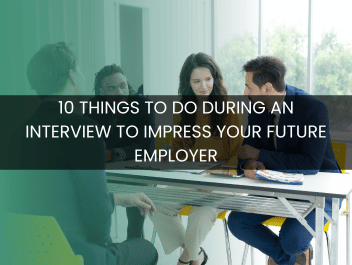

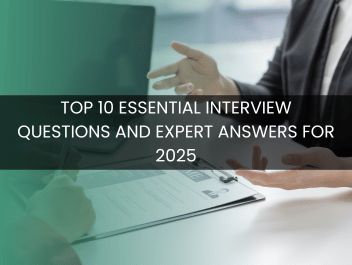





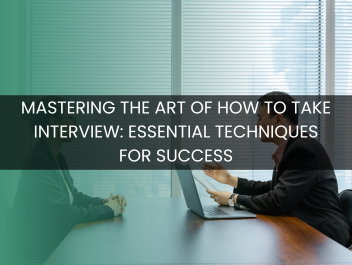
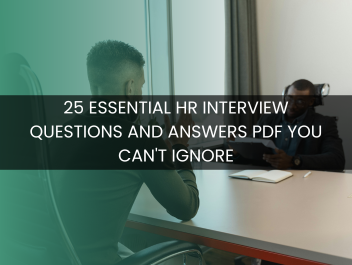



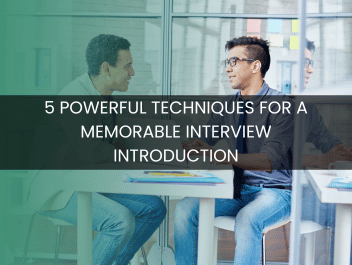
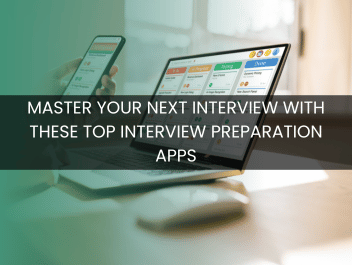






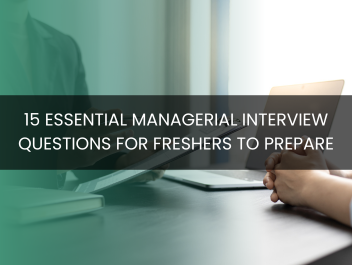


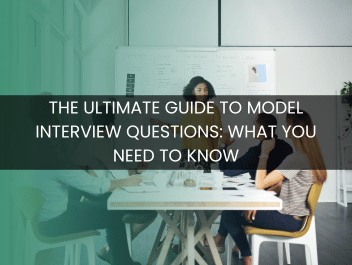


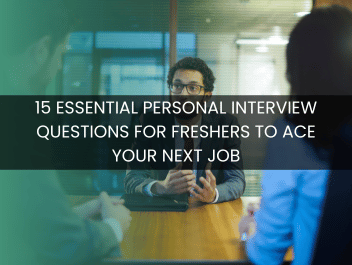


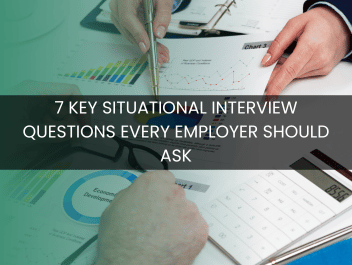
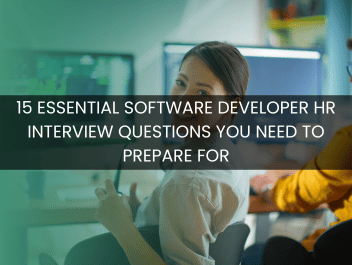
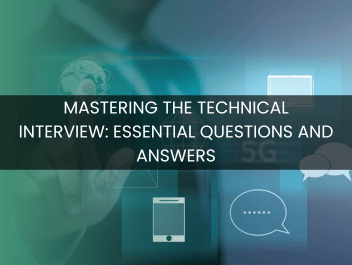

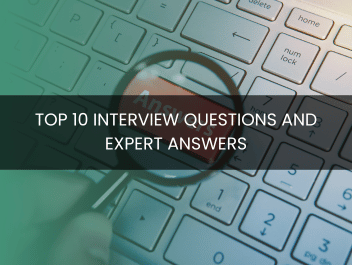
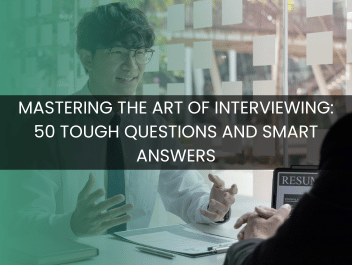

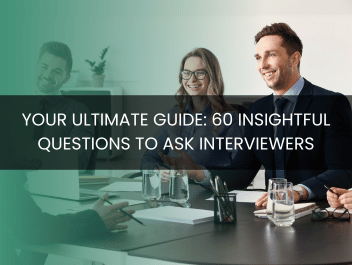








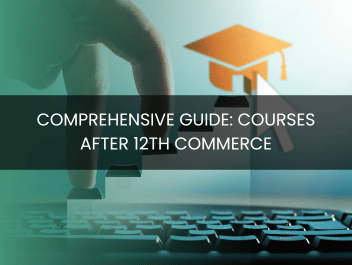















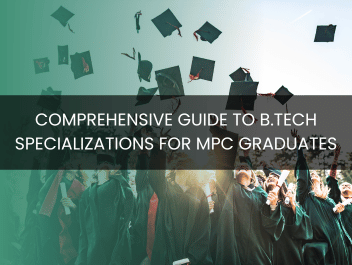


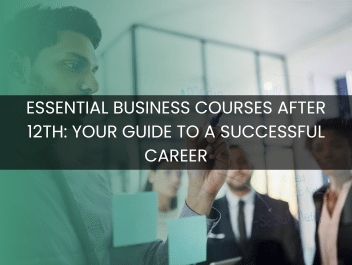




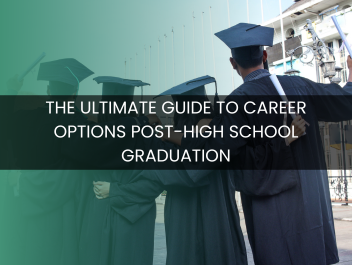






















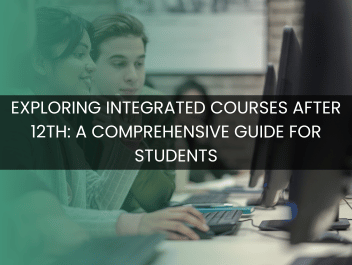






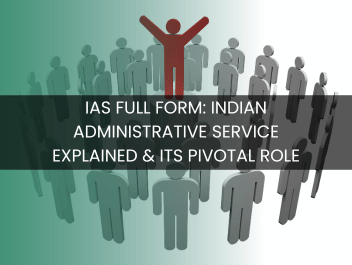



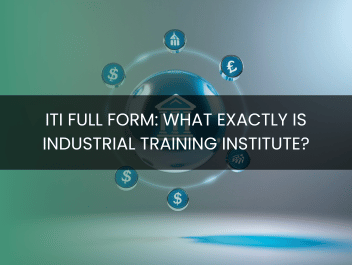





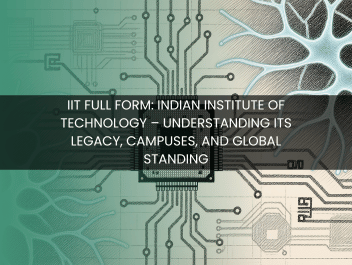
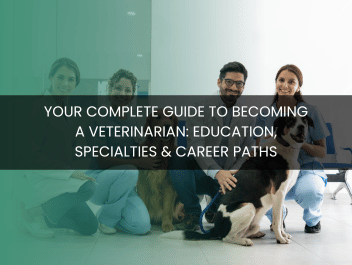




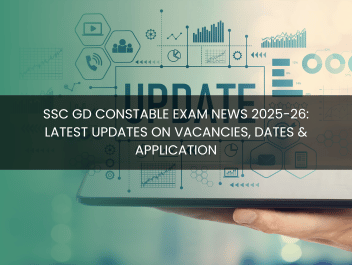


_Thumbnail_.png )
_Thumbnail_.png )








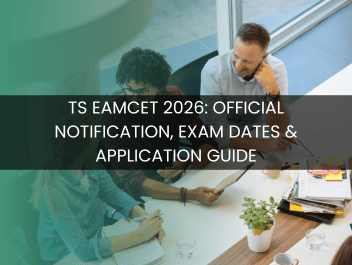
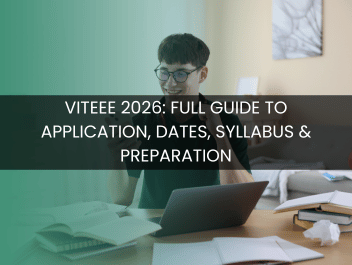

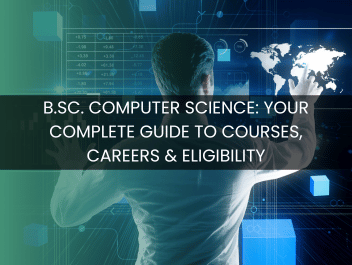


_All_You_Need_to_Know_Thumbnail_.png )






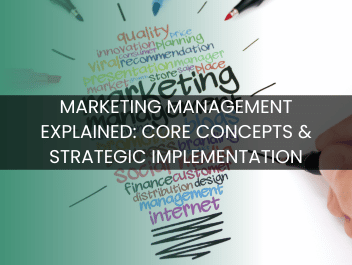
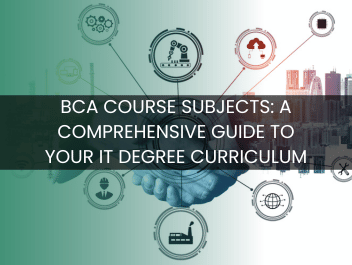
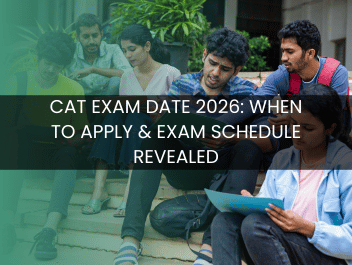
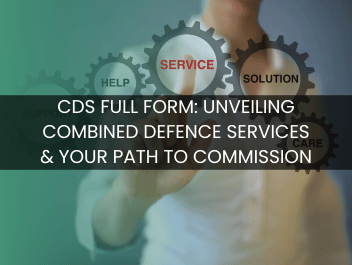

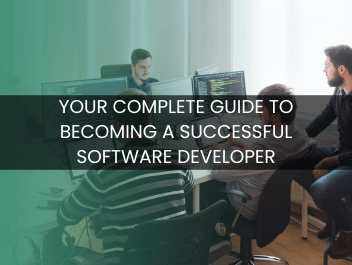







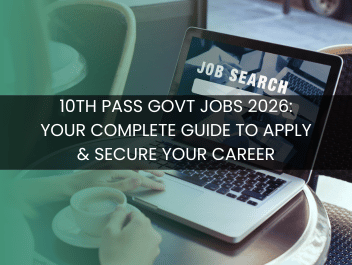
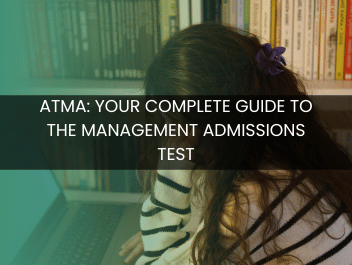

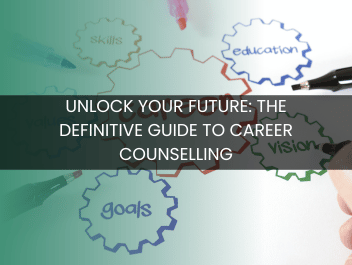

_Thumbnail_.png )

